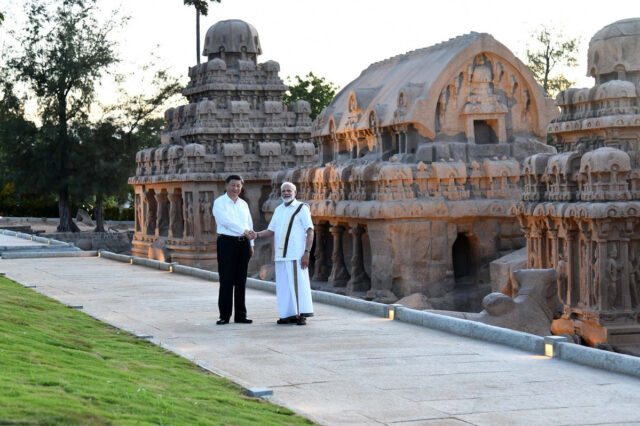NEW DELHI: The killing of Quds Force commander Gen. Qassem Soleimani by the U.S. has opened an interesting question. How long would it take China to muscle that kind of hard power to carry out an operation of a similar kind? Some would say at least a decade, others even longer.
The point is that kind of impunity takes time to manifest itself and the U.S. has been at it for the last 50 years at least. It draws from Washington’s superpower status, its hi-tech military and gargantuan economy that facilitate its contempt for international law.
There can be little doubt that China is working assiduously towards that end, drawing together diverse elements of its national power with the single purpose of beating the U.S. at its own game. It would prefer not to take on the U.S. directly but will have no compunction in threatening and intimidating smaller countries or buying their top leaders to get its way.
War is something Beijing would avoid. War is not good for business, more so for an export-oriented economy like China’s. Any decision to go to war will therefore be carefully weighed, the consequences thought through including the certainty of victory (or the risk of defeat).
But one point is clear. China will use its power differential wherever it can, whenever it can. So for India-China relations, 2020 maybe no different from 2019 or 2018, which is what a section of the establishment in Delhi believes. There will be a lot of talk at various fora, pull-asides at multilateral events, even some tactical collaboration on climate change and the annual one-on-one optics between Narendra Modi and Xi Jinping will continue.
But it doesn’t change how the Mandarins see India. China will lose no opportunity to diplomatically attack and seek to undermine or isolate India. They see this country as economically weak and politically divided, yet it also has the potential to emerge a challenger to China in the years ahead.
Therefore, if they perceive a chink in the armour (perhaps Kashmir), they will try and exploit. They will try and use their economic clout to influence key domestic decisions such as on 5G and divert or put off discussion on India’s demand for greater access to the Chinese economy.
China watchers in Delhi say they expect no movement on settling the border dispute because India will not succumb to China exerting its power differential to secure a deal on its terms. Beijing has done this with each of its neighbours, including Russia.
At the regional level, China will continue to encourage and arm Pakistan as a rival to India and intensify their strategic inroads into this neighbourhood. Internationally, they will continue to block India’s entry into the Nuclear Suppliers Group and use the Belt & Road Initiative as a strategic tool to build economic influence and political power.
India has no pressure points it can apply against China—that is the frank admission in a section of the establishment in Delhi. India can pinprick, irritate and annoy but little beyond that.
Strictly speaking, India is not a priority for China (although the trade surplus is quite agreeable) but Delhi’s refusal to join the RCEP would have disappointed Beijing, maybe even confirmed hardline views of this country.
To repeat, India-China relations in 2020 may be little different from 2019. Hopefully, the two countries will not slide into another Doklam-like confrontation but given the opaque working of the Chinese leadership, there is no telling whether internal pulls and pressures in Beijing trigger something on the remote Himalayan frontiers with India.
















